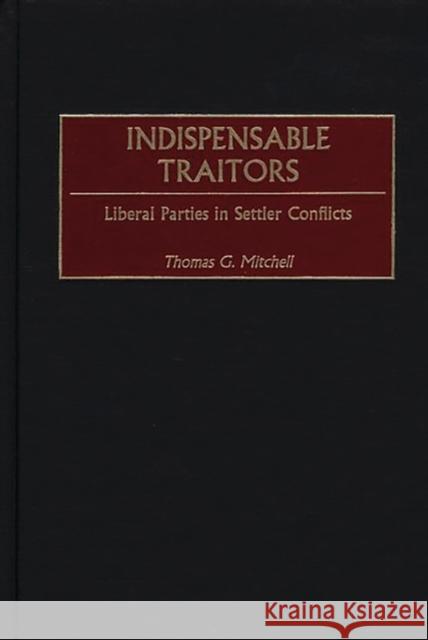Indispensable Traitors: Liberal Parties in Settler Conflicts » książka
Indispensable Traitors: Liberal Parties in Settler Conflicts
ISBN-13: 9780313317743 / Angielski / Twarda / 2002 / 168 str.
In settler societies, some conflicts have roots that are both ethnic and colonial in nature. These are conflicts between an indigenous ethnic group and groups and between an ethnic group and groups of settlers who have been transplanted to a territory by a colonial power as part of a colonizing effort. This study examines the role that liberal parties have played and can play in recent conflicts in Israel/Palestine, Northern Ireland, and South Africa. Typically, such parties reject the conventional wisdom of the settler population regarding the nature of the conflict. They also reject the radical thinking of the liberation movements and offer, instead, a third alternative. Mitchell hopes that this study will provide useful information for current liberal parties in Central and Eastern Europe and Israel.
Ultimately, many of the liberal party's ideas are adopted by the main settler parties, allowing for a resolution of the conflict, generally through a compromise between the liberal and indigenous positions. However, before such resolution can occur, the liberals must achieve an electoral breakthrough that gives them a minimum of between five and ten percent of votes; they must also obtain significant stable representation in parliament. Liberal leadership must be innovative, offering new solutions that depart from the conventional wisdom of both sides. Mitchell provides the most detailed account yet published on the Alliance Party of Northern Ireland. He also includes extensive information on the KwaZulu/Natal Indaba of 1986 and analysis of the electoral fortunes of the Progressive Federal Party in South Africa.











